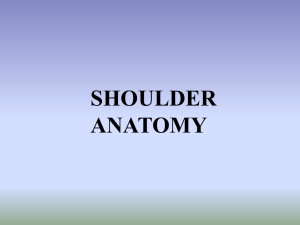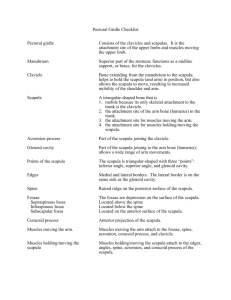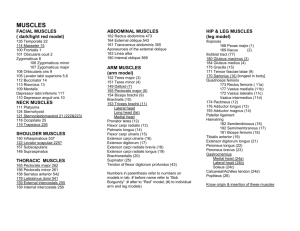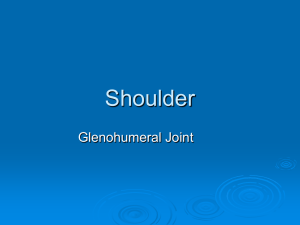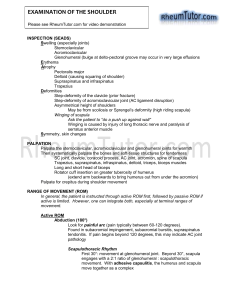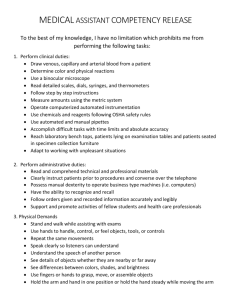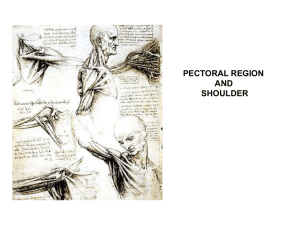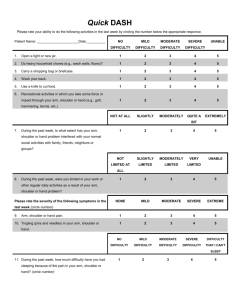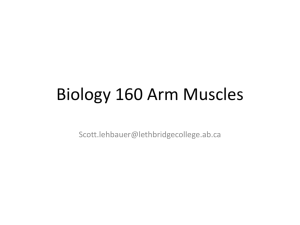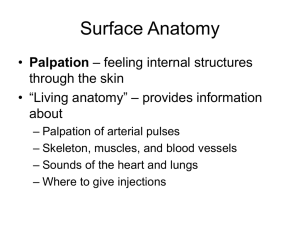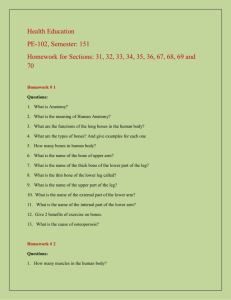Name: Muscles of the Chest, Shoulder, and Upper Limb Laboratory
advertisement
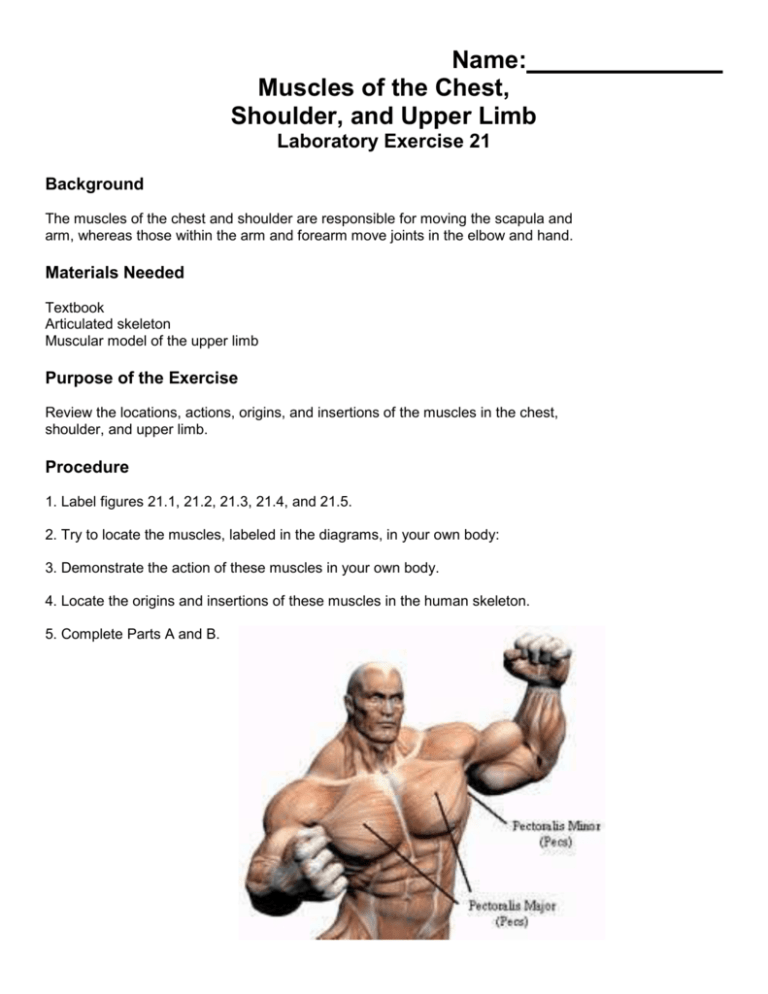
Name: Muscles of the Chest, Shoulder, and Upper Limb Laboratory Exercise 21 Background The muscles of the chest and shoulder are responsible for moving the scapula and arm, whereas those within the arm and forearm move joints in the elbow and hand. Materials Needed Textbook Articulated skeleton Muscular model of the upper limb Purpose of the Exercise Review the locations, actions, origins, and insertions of the muscles in the chest, shoulder, and upper limb. Procedure 1. Label figures 21.1, 21.2, 21.3, 21.4, and 21.5. 2. Try to locate the muscles, labeled in the diagrams, in your own body: 3. Demonstrate the action of these muscles in your own body. 4. Locate the origins and insertions of these muscles in the human skeleton. 5. Complete Parts A and B. Figure 21.1 Label the muscles of the posterior shoulder. Figure 21.2 Label the muscles of the anterior chest. Figure 21.3 Label the muscles of the posterior shoulder and arm and the muscles of the anterior shoulder and arm. Figure 21.4 Label the muscles of the anterior forearm and the muscles of the posterior forearm. Part A Match the muscles in column B with the actions in column A. Place the letter of your choice in the space provided. Column A Column B ___ 1. Abducts Arm a. Brachialis ___ 2. Pulls arm forward and across chest and rotates arm medially b. Coracobrachialis c. Deltoid ___ 3. Flexes and adducts hand at the wrist d. Extensor carpi ulnaris ___ 4. Rotate and adducts scapula e. Flexor carpi ulnaris ___ 5. Rotates forearm medially f. Flexor digitorum ___ 6. Protracts shoulder, abducts and medially Rotates scapula g. Infraspinatus ___ 7. Turns forearm laterally h. Pectoralis major ___ 8. Depress and protract shoulder i. Pectoralis minor j. Pronator teres ___ 9. Flexes the forearm at the elbow k. Rhomboid muscles ___10. Flexes and adducts arm at the shoulder along with pectoralis major l. Serratus anterior ___11. Extends the forearm at the elbow m. Supinator ___12. Extends, adducts, and rotates arm medially n. Teres major ___13. Extends and adducts hand at the wrist o. Triceps brachii _____14. Rotates arm laterally (2 answers) p. Latissimus dorsi ___15. Flexes distal joints of fingers Part B Name the muscle indicated by the following combinations of origin and insertion. Origin Insertion 1. Transverse process of first cervical vertebrae Muscle Vertebral border of scapula 2. Anterior surfaces of upper ribs Coracoid process of scapula 3. Anterior margins of ribs 1-9 Anterior surface of medial border of scapula 4. Coracoid process of scapula Medial shaft of humerus 5. Lateral border of scapula Greater tubercle of humerus 6. Subscapular fossa of scapula Lesser tubercle of humerus 7. Inferior angle of scapula Intertubercular groove 8. Anterior distal surface of humerus 9. Medial epicondyle of humerus and coronoid process of ulna Olecranon of ulna 10. Medial surface of distal ulna Anterior and lateral surface of radius Anterior and lateral surface of radius 11. Lateral epicondyle of humerus Lateral surface of radius 12. Medial epicondyle of humerus Base of second and third metacarpals 13. Medial epicondyle of humerus Tendinous sheet of palm 14. Distal lateral surface of humerus Base of second and third metacarpal 15. Lateral epicondyle of humerus Base of fifth metacarpal
